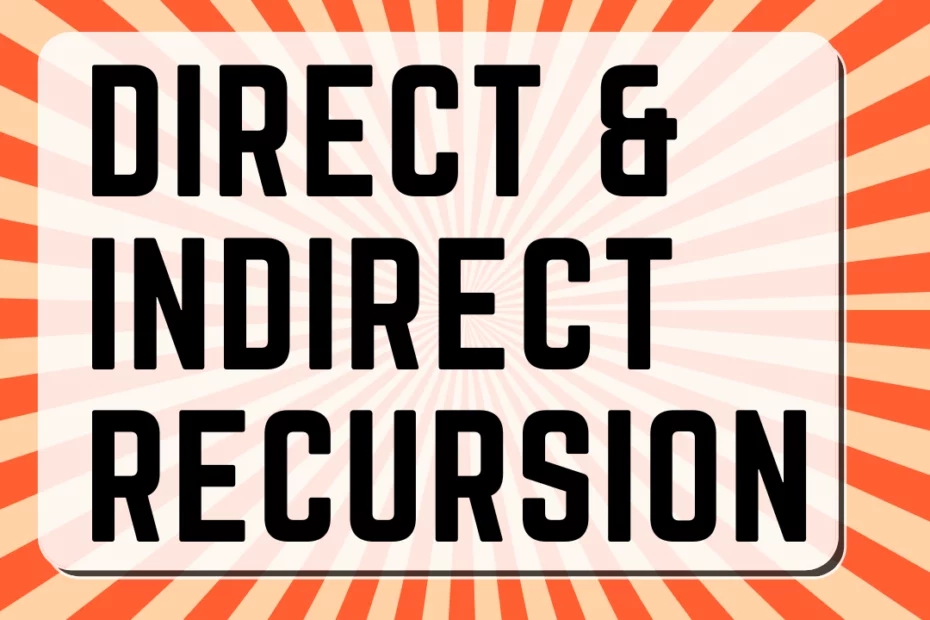In programming, Recursion means a function calling itself. The best use of recursion is when we have a big/complex problem and is solved by breaking down the problem into smaller instances. In this post, we’ll see direct and indirect recursion.
Types of Recursion
Generally, there are two main types of Recursion based on whether the function calls itself or calls another,
- Direct Recursion
- Indirect Recursion
Direct Recursion
As in the name itself, direct recursion is a single step recursion case where the function calls itself.
Example
#include <stdio.h>
void fun(int n)
{
if (n > 0)
{
printf("% d", n);
fun(n - 1);
}
}
int main()
{
int x = 5;
fun(x);
return 0;
}Output
5 4 3 2 1Indirect Recursion
In simple words, indirect recursion depends on another function. It contains two functions that depend on one another.
Example
#include<stdio.h>
void funA(int n)
{
if(n>0)
{
printf(" %d",n);
funB(n-1);
}
}
void funB(int n)
{
if(n>0)
{
printf("%d",n);
funA(n-1);
}
}
int main()
{
funA(10);
return 0;
}
Output
10 9 8 7 6 5 4 3 2 1Conclusion
This post is a part of my #30DaysChallenge to write a blog post every day on what I learn. All the Best ~ Abhiram Reddy
